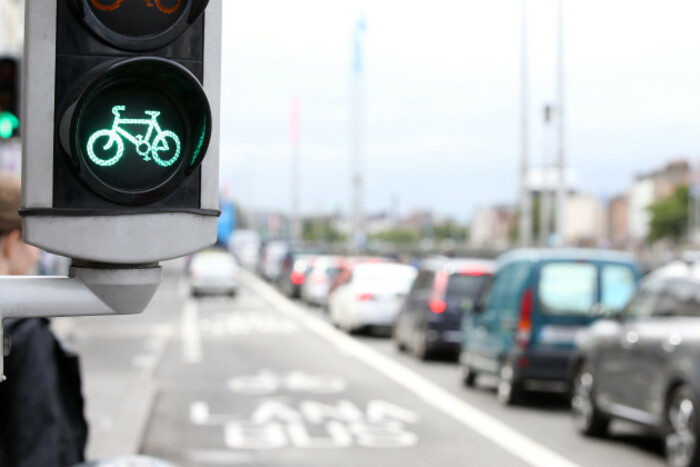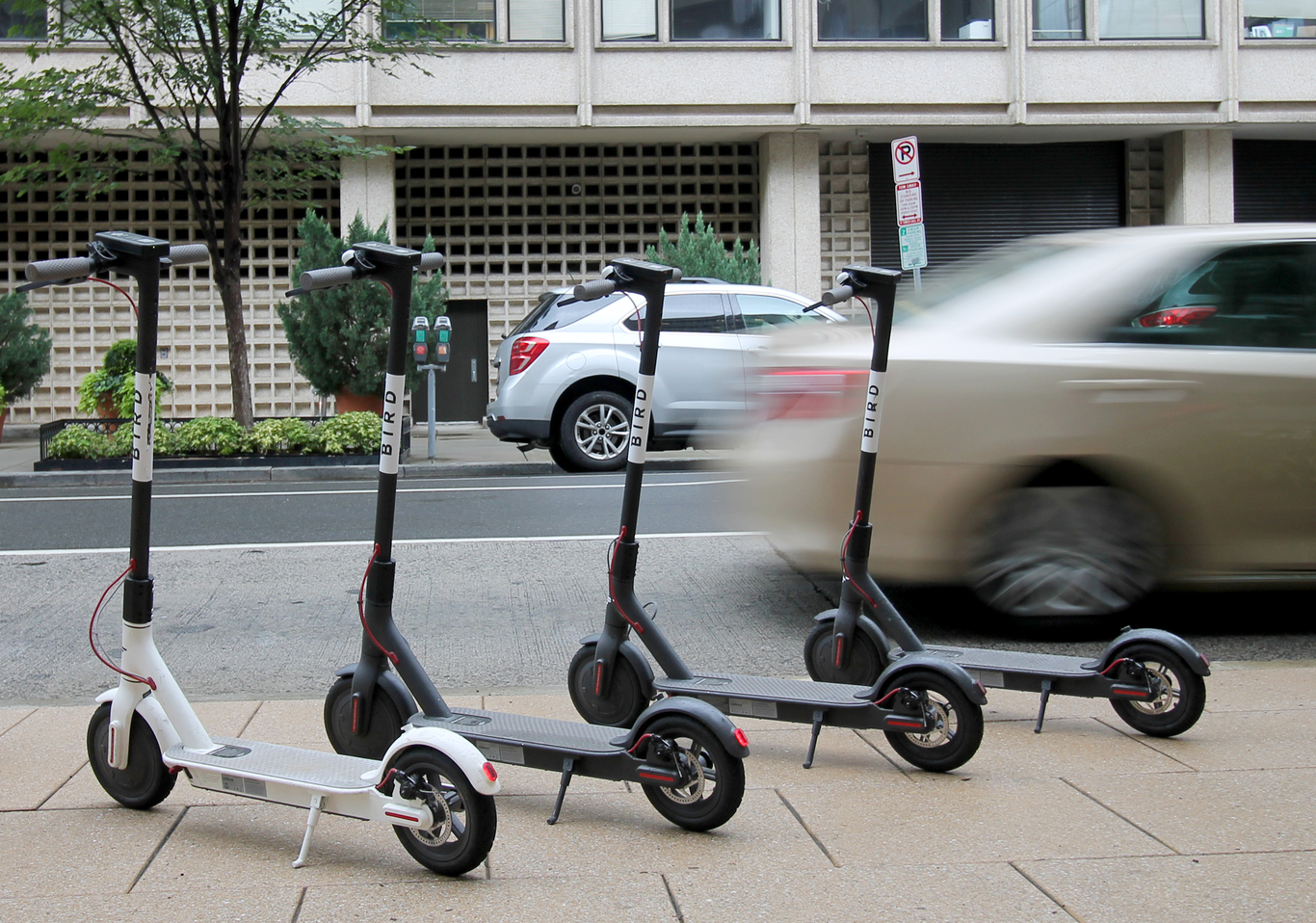Why it's time for Ireland's lawmakers to get a scoot on with e-scooters
Some officials think the tech is a ‘non-starter’. But workers are already speaking with their feet.
LATE LAST YEAR, I stood beside a government official at the launch of a smart transport event. The conversation turned to e-scooters and their increasing presence on the streets of Dublin.
There was almost a sense of satisfaction as he declared that e-scooters shouldn’t be used on Irish streets or pathways.
It was a startling moment. In e-scooters we have a technology that’s potentially hugely useful in the battle to ease congestion and to accomplish the simple aim of making Dublin an easy city to move around.
That official isn’t alone in his dismissive attitude towards e-scooters. It’s a sentiment that’s shared in many other corridors of power around Dublin where problems are found in every solution.
An official from Dublin City Council – which has done so much in terms of setting Dublin up to embrace smart technologies through its successful Smart Dublin initiative – was recently quoted as saying: “It is the council’s view that the use of electric scooters on public roads is illegal and that it is a matter for An Garda Síochána to enforce under road traffic legislation.”
This view is at odds with the council’s welcome desire to test and incorporate new potential-filled technologies in other areas.
Grey area
The legality of e-scooters is best described currently as a grey area. E-scooters are ‘mechanically propelled vehicles’ and as such come under the rules and regulations of the 1961 Road Safety Act.
By the letter of the law, it appears that e-scooters need to be taxed and insured. However, as Dublin Chamber outlined in a submission to the Department of Transport last year, this is a law that far precedes e-scooter technology and that does not properly address their technological make-up.
A spokesperson for the Department of Transport, quoted in The Irish Times last week, described e-scooters as “a non-starter” in Ireland. But this misses the point – the scooter has already bolted.
E-scooters are already prevalent on the streets of Ireland’s cities, especially Dublin. Stop for a while in the city’s IFSC or Grand Canal Dock areas and you’ll see people whizzing quietly along on their nifty scooters all around you.

You’ll find the same scene in Sandyford, where the staff of tech giants such as Microsoft, Salesforce and Vodafone have embraced e-scooters en masse as a perfect solution to making short-ish journeys between meetings or even to carry out part of their daily commute between home and office.
The people are speaking with their feet: e-scooters are a mode of transport that’s both useful and wanted in Dublin. Our challenge now, as a city and as a country, is to ensure that we’re able to react and properly integrate them into our society.
Businesses want them too. For proof of that, note a recent Dublin Chamber survey of 500 workers which found that two-thirds would support the increased use of e-scooters in the city.
Mindset
New technologies such as e-scooters are regularly billed as ‘disruptive’. But that type of thinking needs to be flipped on its head. The mindset when it comes to e-scooters needs to change from ‘should these be allowed’ to ‘how can we embrace them and fully capitalise on the benefits that they clearly can bring.’
It’s not just e-scooters or smart technologies either. It’s possible, at least in part, to link Ireland’s slowness to embrace electric cars to the same lack of progressive thinking.
You can see it in regard to cycling. The number of people cycling in Dublin is growing all the time. Yet, rather than embracing this undoubted positive development – and the huge potential for continued growth – the rhetoric that still too often pervades the discussion is one in which cycling is held up as some kind of problem child within the transport family. See the ridiculous debate around the very impressive Fitzwilliam Cycle Route proposal for evidence of that.

Minister for Transport Shane Ross has tasked the Road Safety Authority with researching whether e-scooters have a future in Ireland. The Department of Transport says that when this work is complete it will then decide whether or not to amend existing legislation.
One of the key aspects of the RSA’s study, apparently, will be how e-scooters have worked in other cities.
E-scooters and dockless e-scooter sharing systems have become extremely popular in US cities. They have now arrived in European cities too, including Madrid, Paris, Berlin, Vienna and many more.
The RSA and the department would also do well to look at London, where the authorities have adopted a progressive approach and where the transport minister is currently looking closely at finding ways to allow e-scooters – and also other vehicles such as Segways – on the roads, potentially through a licence or permit system.
If other cities – there are scooter-share firms in more than 100 US cities – can find a way to incorporate e-scooters then why can’t Dublin?
Better still, these cities being further down the line on e-scooters provides Dublin with an opportunity to learn from their mistakes and to avoid many of the pitfalls that have beset other places.
Policymakers need to put the appropriate regulations in place to support their use. Put simply, it’s time for attitudes to change and for common sense to prevail.
Graeme McQueen is head of communication at Dublin Chamber.






